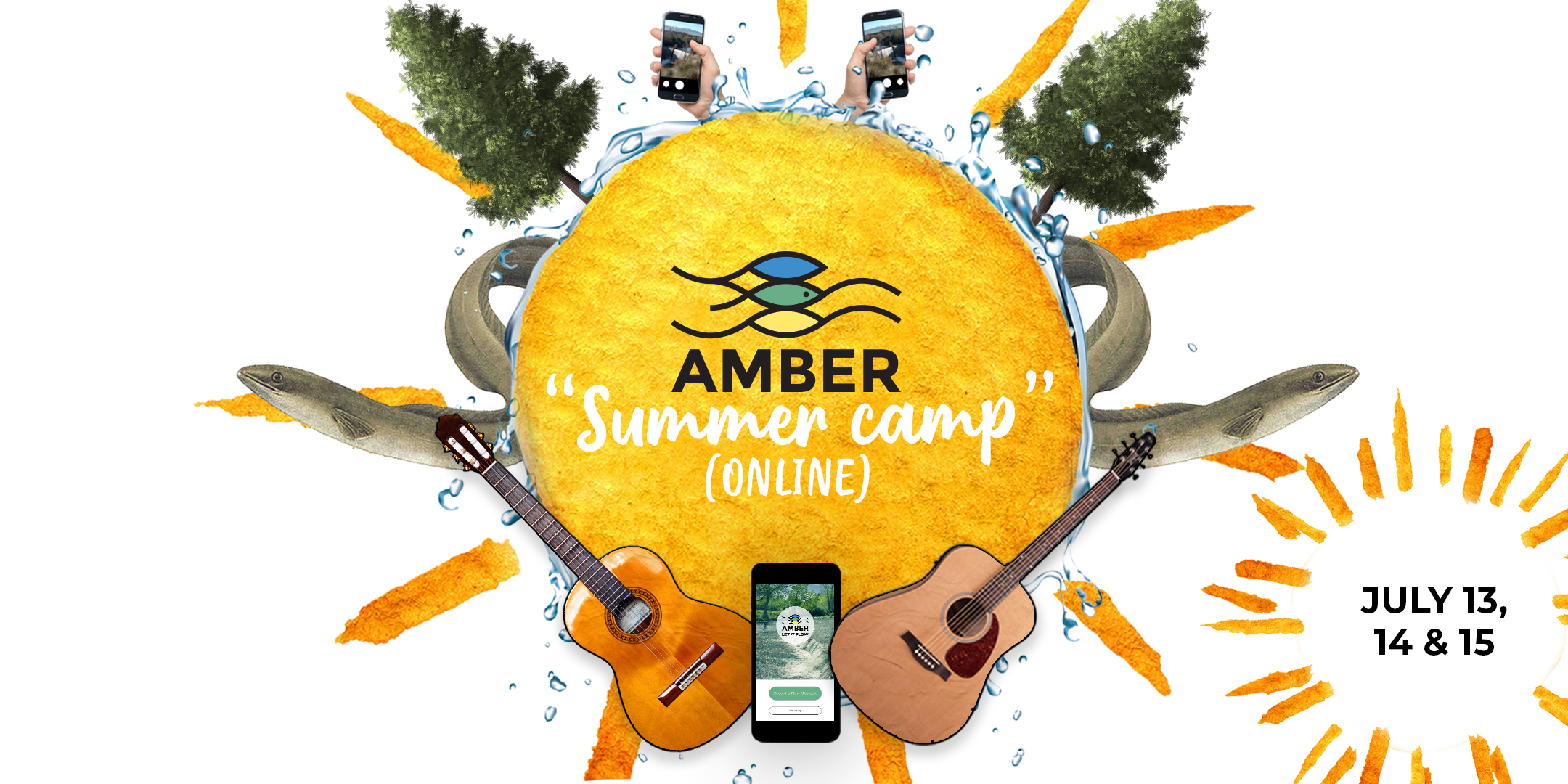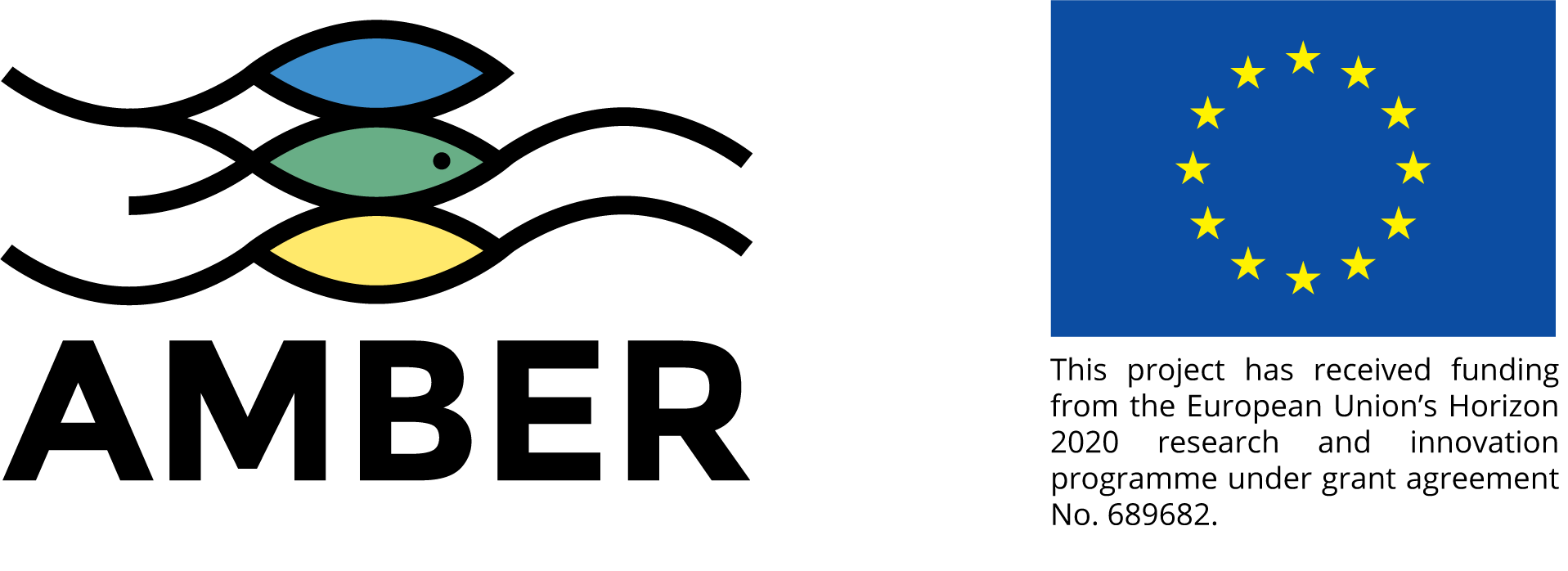
- This event has passed.
Summer Camp
July 13, 2020 @ 10:00 am - July 15, 2020 @ 11:30 am

An in-depth online workshop for practitioners interested in adaptive barrier management in Europe’s rivers
Would you like to know more about in-stream barriers in Europe’s rivers, and learn about our tools and solutions for river restoration? Join us on the 13th, 14th and 15th of July for our Online AMBER Summer Camp!
On the 29th of June, we presented the main results of the EU Horizon2020 AMBER project (AMBER & FITHYDRO EVENT – SMART WAYS TO IMPROVE RIVER CONNECTIVITY). Now, we are organising more in-depth sessions that will explore the projects results for practitioners. Over the course of three days, we will organise two, hour and a half sessions per day. These sessions will cover, in detail, about the gathered data for Europe’s first map of in-stream barriers, how AMBER tools can be used for optimising river connectivity and how we plan on using the Barrier Tracker in the future. Realising the sessions are in the middle of a period that for many is about holidays, we thought we give it a bit of a summer twist – AMBER online Summer Camp! If you are interested, please register for one or more of our AMBER Summer Camp sessions:
Program (times in CET)
13 July 2020
| Session 1: Barrier inventory and estimation of fragmentation | |
| 10:00 | Intro | Arjan Berkhuysen, World Fish Migration Foundation |
| 10:05 | Set up of the AMBER barrier inventory | Barbara Belletti, Politecnico di Milano |
| 10:25 | Questions |
| 10:35 | Estimation of fragmentation | Josh Jones, University of Swansea |
| 10:55 | Questions |
| 11:05 | Conclusions and recommendations next steps | Barbara Belletti and Josh Jones |
| 11:15 | Questions and discussion |
| 11:30 | Closing campfire song |
| Session 2: Use of Decision Support Tools for Barrier Prioritization and Mitigation | |
| 14:00 | Intro | Arjan Berkhuysen, World Fish Migration Foundation |
| 14:05 | Decision support tools for balancing multiple objectives in river infrastructure planning | Jesse O’Hanley, Ingenieurbüro Kauppert |
| 14:35 | Questions |
| 14:45 | Network scale sediment connectivity modelling for sediment management | Simone Bizzi, Politecnico di Milano |
| 15:15 | Questions |
| 15:30 | Closing campfire song |
14 July 2020
| Session 3: Rapid barrier assessment considering fish habitat | |
| 10:00 | Intro | Arjan Berkhuysen, World Fish Migration Foundation |
| 10:05 | Assessing fish habitats around barriers with MesoHABSIM simulation model | Piotr Parasiewicz, The Stanisław Sakowicz Inland Fisheries Institute |
| 10:45 | Questions |
| 10:55 | Rapid data collection for MesoHABSIM | Katarzyna Suska, The Stanisław Sakowicz Inland Fisheries Institute |
| 11:15 | Questions |
| 11:25 | Wrap up and discussion | Arjan Berkhuysen, World Fish Migration Foundation |
| 11:30 | Closing campfire song |
| Session 4: Use of Telemetry for Rapid barrier assessment | |
| 14:00 | Intro | Arjan Berkhuysen, World Fish Migration Foundation |
| 14:05 | Use of Telemetry for Rapid barrier assessment | Martyn Lucas, Durham University |
| 15:05 | Questions |
| 15:20 | Wrap up and discussion | Arjan Berkhuysen, World Fish Migration Foundation |
| 15:30 | Closing campfire song |
15 July 2020
| Session 5: Tracking barriers by citizens and professionals | |
| 10:00 | Intro | Arjan Berkhuysen, World Fish Migration Foundation |
| 10:05 | Using Barrier Tracker | Sara Garrido, AEMS Rios con Vida |
| 10:35 | Questions |
| 10:45 | Evaluating Barrier Tracker for future use and development | Bas Deelman, World Fish Migration Foundation |
| 11:05 | Questions |
| 11:10 | Discussion on future of Barrier Tracker | Arjan Berkhuysen, World Fish Migration Foundation |
| 11:30 | Closing campfire song |
